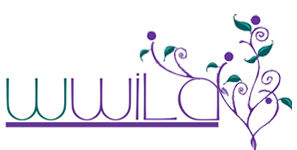How to support a loved one who has been sexually assaulted – Published by Triple J Hack Program, ABC.
By Meghna Bali
Excerpt from article:
It’s been a pretty difficult few months for sexual abuse survivors.
If you or anyone you know needs help:
- 1800 RESPECT on 1800 737 732
- Lifeline on 13 11 14
- Kids Helpline on 1800 551 800
- Suicide Call Back Service on 1300 659 467
- BeyondBlue on 1300 22 46 36
- Headspace on 1800 650 890
In the weeks after Grace Tame was named 2021 Australian of the Year, the floodgates opened for thousands of survivors to share their own stories of assault.
Inspired by people like former political staffer Brittany Higgins and sex education advocate Chanel Contos, Hack listeners opened up about their experiences too, through texts, Facebook and Instagram messages, emails and voice memos. In some cases, disclosing their assaults for the first time ever.
In the last fortnight, ReachOut has seen 8,000 people accessing sexual support information on their platform, an increase of 54 per cent on the week before.
And it can get heavy, for survivors and for the people they’re telling. If you’ve been in that position, it can be difficult to know what to say or do to support your friend or loved one.
While there’s no one way to respond when someone shares their story with you, we asked senior sexual assault counsellor Dr Neeraja Sanmuhanathan and ReachOut CEO Ashley de Silva for some tips on how to help.
Believe them
When someone discloses their sexual assault to you, it’s important to be aware that they’re actually taking a pretty brave step.
Dr Neeraja said it’s critical that you don’t ignore what the person has said and say you believe them.
“They’re being vulnerable in what they share,” she said.
“I think negative responses… can often make survivors who are yet to disclose or who are thinking about disclosing feel really scared and invalidated.”
This can also mean challenging self-blame and victim-blaming. So saying something like “this is not your fault, what’s happened is a crime”.
Ashley said it was also really important to avoid saying anything that takes the person’s experience into doubtful territory. Don’t ask them any ‘why’ questions like why they were in a particular place or why this incident happened.
Make sure you’re in a safe space
If someone starts sharing their experience of assault with you, make sure you’re in an appropriate environment.
Ashley said this could mean moving to a quieter space and silencing phones, but also listening without judgment, and not jumping in to try to fix the problem.
“It’s really important to know in that moment that you’re really there to listen, and kind of honour what it is that they’re sharing,” he said.
Empower their choices
Once someone has shared their story with you, ask them what they’d like to do next.
Seeking out support can be an important part of a survivor’s recovery, but it’s important to not force them if they’re not ready to do it.
“It’s okay to ask at a time it feels natural about whether or not they’ve spoken to anyone else, whether they’re seeking support from other places,” Ashley said.
“It’s also fine to say that those types of things can be useful when you’re ready to do them if you’re ready to do them.”
Dr Neeraja said it was important not to tell survivors to do something just because that appears to be the next best step, like going to the police.
Support what they want
If your friend or loved one is in the mind space to seek support, you can still play a role in helping them through that.
Ashley said it could be things like helping them connect with support services, making an appointment with a GP or even going with them to the police.
‘You’re always trying to work with the person to be in control of what it is that feels right for them,” he said.
Ashley said even if you feel like they really need to go to the police, but the person says they’d rather speak with someone anonymously first, you can help them research and figure out what the most appropriate services for that are.
“Ask upfront whether they’d like anyone to be with them when they seek out support… don’t assume it, but always show that you’re willing to be that person if you’re able to,” he said.
Follow up with them
It’s also helpful to check in with your friend or loved one after the conversation to see how they’re going.
“That’s a way of showing that you recognise this was a really big thing that they shared with you,” Ashley said.
This keeps an open line for them and you can ask if there’s anything more you can do to support them, and that can change over time.
Take care of yourself too
Holding space for these kinds of conversations can get pretty heavy, so it’s important to check in with yourself and keep your boundaries in mind.
Dr Neeraja explained that it’s okay to feel overwhelmed, confused and unsure about next steps following a disclosure.
“Self-care can help you ground yourself again and make you feel safe and nurtured,” she said.
She reckons it’s good to:
- Take some time out of your daily routine
- Connect with those you feel safe with, reach out for social support
- Write in a journal, it can be helpful putting down your thoughts onto paper
- Be mindful of your headspace. It is okay to walk away from situations or conversations (e.g. news) that may be triggering
- Take long baths or long walks
- Seek professional support, you can explore therapy or reach out to telephone support through services like 1800 Respect (1800 737 732) or Lifeline 13 11 14

